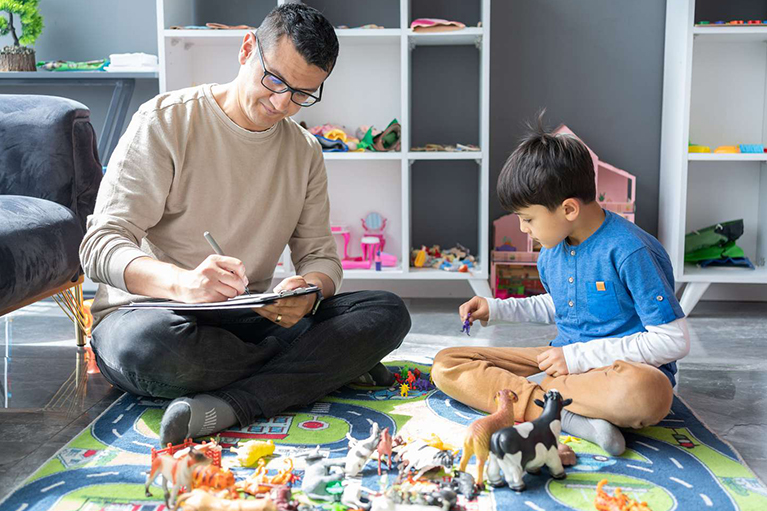The Power of Early Cognitive Development: Why It Matters for Your Child’s Future

From the moment a child is born, their brain embarks on an incredible journey of growth and development. Early childhood is a crucial period when cognitive abilities—such as problem- solving, memory, and attention—begin to take shape. Understanding the importance of cognitive development can help parents, educators, and caregivers create a supportive environment that fosters learning and success. But why is cognitive development so vital, and how does psychology play a role? Let’s explore!
Laying the Foundation for Lifelong Learning
Cognitive development serves as the foundation of learning. Skills like memory, logical reasoning, and problem-solving equip children with the tools necessary for academic and social success. Early exposure to stimulating activities—such as puzzles, storytelling, and hands-on exploration—helps young minds build connections that shape their ability to understand complex concepts later in life.
Boosting Language and Communication Skills
Language development is a crucial aspect of cognitive growth. As children’s cognitive abilities expand, so does their capacity to understand and use language. Engaging in conversations, reading together, and encouraging self-expression through storytelling all help children develop strong verbal and comprehension skills. These abilities lay the groundwork for effective communication, which is key for social interaction and learning.
Enhancing Emotional and Social Development
Cognitive growth is closely linked to emotional intelligence. As children learn to process information, they also begin to understand emotions—both their own and those of others. Developing cognitive skills supports emotional regulation, helping children navigate social interactions, manage frustration, and build empathy. Psychology underscores the importance of fostering emotional intelligence early on to promote well-rounded development.
Encouraging Critical Thinking and Problem-Solving
Cognitive development nurtures curiosity and independent thinking. When children engage in problem-solving activities—such as building blocks, riddles, or strategic games—they strengthen their ability to think critically and adapt to new challenges. These skills become essential as they grow, enabling them to navigate real-world situations with confidence and creativity.
Psychological Theories That Explain Cognitive Growth
Several psychological theories help us understand how cognitive development unfolds:
- Jean Piaget’s Stages of Cognitive Development: Describes how children progress from sensory experiences to abstract reasoning.
- Lev Vygotsky’s Sociocultural Theory: Emphasizes the role of social interactions in cognitive growth.
- Erik Erikson’s Psychosocial Stages: Connects cognitive and emotional development, highlighting how early experiences shape a child’s identity.
The Long-Term Impact on Success
Strong cognitive skills in early childhood predict better academic performance, problem-solving abilities, and even career success. Early interventions to address cognitive delays—such as specialized learning strategies and behavioural support—can significantly improve outcomes. By fostering cognitive development from a young age, parents and educators can empower children to reach their full potential.
Final Thoughts!
Cognitive development during early years sets the stage for a child’s future. By understanding its importance and leveraging insights from psychology, we can create enriching environments that nurture a love for learning, curiosity, and resilience. Whether through engaging activities, interactive learning, or simply encouraging a child’s natural curiosity, every small effort contributes to a lifetime of success.
Want to learn more about how to support your child’s cognitive development? Stay tuned for more expert insights and practical tips!